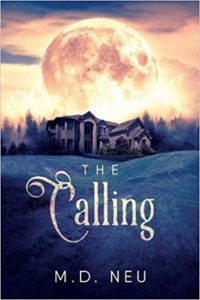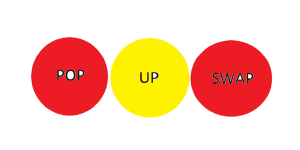
The Pop Up Swap is back! Well, from so long ago, I’m probably the only person on earth who remembers it ever existed. So let me explain…
A couple years ago I had this marvelous idea to exchange manuscripts and dialogue with fellow authors whose work I admire, and who write in similar genres, and it would be a scintillating, fresh approach to the typical author interview one finds in the blogosphere. Plus it would provide an opportunity for my readers to get to know some of the authors in my life. Here’s my Pop Up with historical fiction author Elin Gregory, for example.
I called it a pop-up because I knew it could come and go quickly and be a bit unpredictable. Life happens, and I generally don’t have a ton of time to do big features here at my site. That most definitely proved to be true, but this year I found new motivation and some new friends who were willing to do the swap. Yee-haw!
So for the rebirth of the Pop Up Swap, I politely asked strong-armed fellow NineStar author M.D. Neu (Marvin) into reading each other’s work and interviewing each other based on that. He read Irresistible and you can find my interview with him here. A bit about M.D.…
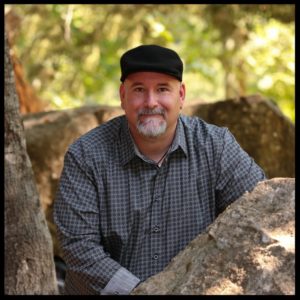
M.D. Neu is a LGBTQA fiction writer with a love for writing and travel. Living in the heart of Silicon Valley and growing up around technology, he’s always been fascinated with what could be. Specifically drawn to sci-fi and paranormal television and novels, M.D. Neu was inspired by the great Gene Roddenberry, George Lucas, Stephen King, Alice Walker, Alfred Hitchcock, Harvey Fierstein, Anne Rice, and Kim Stanley Robinson. An odd combination, but one that has influenced his writing.
Growing up in an accepting family as a gay man, he always wondered why there were never stories reflecting who he was. Constantly surrounded by characters that only reflected heterosexual society, M.D. Neu decided he wanted to change that. So, he took to writing, wanting to tell good stories that reflected our diverse world.
When M.D. Neu isn’t writing, he works for a nonprofit and travels with his biggest supporter and his harshest critic, Eric, his husband of nineteen plus years.
I had read and reviewed Marvin’s vampire novel The Calling for Queer Sci Fi about a year back, and we subsequently connected at NineStar’s author Facebook page as well as Twitter. I always enjoy getting to know fellow LGBTQA+ authors, especially the ones who write fantasy. Many thanks Marvin for letting me rope you into this! Oh, and here’s a link to my review of The Calling fyi.
And let’s get started!
AP: Hi Marvin! Thanks for taking part in the swap! I read your vampire story The Calling a little while back and really enjoyed it.
MN: Thank you for having me. I always enjoy chatting with fellow authors.
AP: I think I understand the appeal of gothic horror a bit as a writer, having written shifter fiction myself (Werecat). Besides it being a fun, atmospheric genre, it makes for an interesting milieu in which to tell gay stories because of the romantic themes, the hidden worlds, and the sense of ‘otherness.’
What drew you to writing a vampire story?
MN: For me it’s always been the ‘what if.’ I wanted to know if vampires were real how could they exist, especially in modern society were one viral video and it would be all over. Plus, I’ve always had a thing for vampires so I figured why not combine the two; my love of vampires and my wondering how they could exist today with all our technology.
AP: You have an interesting premise for vampire living in that it’s fairly approachable for the average person like your hero Duncan. There are ‘marks’ he must go through, and those are physically unpleasant for sure while his body goes through violent changes. But vampires have worked out a way to get blood without killing, making it more palatable with flavors like chocolate and cinnamon; and they’re involved in charitable causes, and they keep a lot of human traditions like celebrating Christmas. What would you say was your intention with that portrayal?
MN: Oh, I had a lot of fun with all that. The idea came back to the whole thing of how would they exist and operate in our modern society. It’s all about adapting or dying. The vampires in my world have learned humans don’t like being the bottom of the food chain, and they know if humans ever found out vampires were real, we humans would hunt vampires down and kill them. Despite all the vampire’s gifts, humans have the numbers and my vampires know it. So, the vampires have learned to play our games and live by our rules.
Remember, vampires in my world can’t just create anyone to be a vampire. They have to share a bond, and it’s part of the calling (the process of selection). Plus, my vampires were all human so why not keep the human traditions they know and like? Just because they are vampires doesn’t mean they don’t know how to have fun and enjoy life. It makes them more human, which I think they would need to be to survive, especially nowadays.
Now when it comes to working in charitable causes. That is just Juliet and Duncan. Not all of the vampires are that altruistic. Victor has many businesses he controls. Kirtus is a financial consultant and tax accountant who works a lot with both humans and Immortals. Other vampires have other jobs, and really that is born out of the need to live. They need money and ways to launder money so having jobs and owning companies gives them that ability. Again it all goes back to adapt or die.
AP: I thought you did an amazing job establishing Duncan’s voice, and it’s extra amazing because he’s not such a big personality or a snarky hero. He’d rather blend into the background, but I still found his forthright storytelling really engaging, and the fact he’s such an agreeable, non-presupposing kind of guy, you want to root for him.
Though there’s one thing he’s adamant about I found curious. He doesn’t like queer politics and makes the point a couple of times that gays should be “people first, not gay first.” Did you see that as a defensive position—not wanting to draw attention to his gayness—or is it a deeper part of his make-up—believing the only way forward for progress is for queer people to “act less queer?”
MN: I really wanted to go for an Everyman with Duncan. I wanted him to be your brother, your neighbor, your friend, or that stranger you see on the street that you don’t think twice about. That said, the point I try to make, not only with Duncan, but all my characters, is that queer people are more than their queerness. We are all people first with the queerness secondary. Why should it matter who any person loves or how they show their love? It shouldn’t. It also shouldn’t be the most interesting thing about them. I don’t see it as a defensive position, more of a general philosophy Duncan has. If that makes sense.
AP: So I want to follow up about “people first with the queerness secondary.” I did get that vibe from the book, and not just in the queer context. Since the vampires are literally in hiding and spending a lot of their time very carefully trying not to rock the boat with humans (the “light” vampires I mean, who are the primary focus), they’re also following that mantra in a sense.
[just a little vampire interlude]
MD: In the book, yes. The light vampires don’t really stir things up, and they are in a position where they don’t have too. It’s kind of the same with the Dark. They deal with humans and live with them, but humans don’t really factor into what is happening in their world unless it comes to being exposed. There is good motivation to stay hidden, they don’t want to cause a war which would end up killing a lot of people and the vampires wouldn’t win, at least they don’t believe they would win.
When my characters talk about being people first and whatever second it has to do with how they see the world. At one point Juliet asks Duncan why didn’t he tell her he was gay when they met. His response is ‘why does it matter? Would you have done or treated me any different?” When she says she wouldn’t, she realizes he’s right, she wouldn’t have done anything different so why does it matter to her? It’s a question and answer she hadn’t thought of and I think in the context of the story it makes a nice moment between the two of them.
What I want to show in the book is how ordinary being queer is. We talk about how we all want to be treated equal, so that is what I strive to portray in my stories. Unless it’s part of a character’s issues, queerness will be treated as ordinary and a non-issue. Showing one’s queerness is important to some people, but in my books the queerness comes second because it shouldn’t matter. If we want to live in an equal society then we need to look past what we see and focus on the contents of one’s character. That’s what’s important in my stories. You’re queer. GREAT! Yay! Now what? Can we have an adventure? I want to show the what happens after you know the character is queer. I want to show the adventure, not the coming out.
AP: I also like stories where the main character’s queerness is already established, and I found the focus on Duncan’s vampire trials refreshing. I read a lot of coming out stories and a lot of tortured queer stories when I was “new” to being gay in my twenties, and part of it is that—[cough], twenty some years later—my reading interests have changed. I’m more interested in how queer people navigate other kinds of situations, and I think of that as another dimension of positive representation.
You mention worldview being part of that decision to portray queer characters as “people first with their queerness secondary.” One of the reasons I was drawn to try out this author-interviews-author thing with you, is we have a lot in common, being white, married, gay men who write gay fantasy. Also, we both grew up in middle class families that were pretty supportive. I won’t call us “older men” – I turn 50 this year – but we’re both Gen Xers. Add to that, we both like fantasy that’s more adventure vs. fantasy being a context for exploring coming out or gay relationships.
Yet from your book, from this discussion, it’s interesting how we developed somewhat different worldviews. Like, I wouldn’t describe my writing as “people first, queerness secondary.” I don’t see a separation between the two or an ordering of those characteristics, i.e. don’t queer people have an essential ‘personhood’ already? Plus when you talk about character, that comes from myriad life experiences including queer experiences. For example, if I were writing my autobiography, I see lots of ways my queerness would be pretty essential to understanding who I am. Being married to a man is one obvious aspect, but my passion for social justice is another, as well as I’d say my curiosity about people who are different from me, choosing to live in a diverse, urban community over where I grew up, and my interest in traveling to an extent.
Even my development as a writer was linked to being queer in part. I started as a shy, withdrawn kid who escaped through writing fiction, and as an adult, while few of my stories are directly about overcoming queer oppression, I’m inspired by subverting heteronormative stories, reclaiming them for queer readers.
You talk about making queerness secondary as something of a message to queer people about equality. How do you think you arrived at your particular worldview concerning queer people?
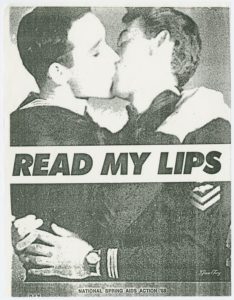
A little queer Gen Xer memorabilia.
MN: When it comes to how I was raised and my coming out, I was raised in a very conservative and moderately religious family. When I came out it was harder on me then it was for my family. They didn’t treat me any different and accepted me for who I am. As conservative and religious as my family is they judge people on character not on who they present to be, who they love, or how they show that love. Sadly, you can’t really say that to people because they don’t believe you. Because they have this belief that all conservatives are bigots. As an example my dad is very politically and socially conservative and yet he wanted to walk me and my husband down the aisle; a lot of people are shocked by that. Some don’t even believe me when I say it, but it’s true and important to me, and that’s why when I write it’s not overly important to represent whether you’re gay, conservative or whatever, it doesn’t really matter. What’s important is how you treat people.
In the case of my family they are people first and conservatives second… does that make sense?
So, that is the world I chose to write about and show. In my novel, it’s never about being queer. It’s about the adventure and the person. I’m not writing a coming out story. My novels and The Calling especially, is about a man who happens to be gay deciding to become a vampire and how that affects him as a person.
At the end of the day all I know for sure is that I treat people how I want to be treated and I think that is something we should all strive for. It is how I write my books, and it is how I tell my stories. I want the reader to have an adventure and enjoy, if it causes them to reflect on life and how they live it great. If it shines a bright light and society and affects change that would be amazing.
AP: Let’s turn back to your story then. How did you come up with the way the vampire world works? I recognized some of the conventions like mind control and the idea of vampire factions, but others were new to me. Did you use particular sources to develop that mythology and ‘world?’
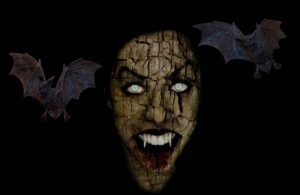
Vampire image from Pixabay
MN: When it came to the world building, I studied traditional vampires, and I found they all had some baseline abilities so I started there. Then I dug into what additional powers and abilities they could have and pulled from there, which was a lot of fun. I also decided that vampires don’t reproduce in the way we’ve seen, they don’t get to just pick someone at random, there is more to it, much more, as we learn in the book. Further, I developed a set of rules for the vampire abilities and tried to keep them. For example, Juliet’s ability to calm people and alter mental states does take a toll on her. It causes her migraines. With Duncan his ability causes him headaches, and he gets tired. So, for each of the vampires they have a down side to their ability. It’s not major, but it’s there for all of them. It’s much more in the background and most people won’t even catch it. Especially since most of the vampires in my novel are older.
The mythology was much the same. I pulled from various sources and created my own. The over all goal was, again, how would they be alive now and what would a vampire community look like.
AP: The Calling ends with a host of possibilities for Duncan’s next adventure. Are you working on a follow-up?
MN: Oh yes. I have the sequel almost finished. Then I will start the editing process. The sequel picks up right were book one ends and we go from there. People will get to see just how imperfect all these beings are. The working title is The Called.
AP: How did you end up finding a home for your work at NineStar Press?
MN: Well, after sending out The Calling and getting various rejections, an author friend of mine sent me a message saying that his editor at NineStar was looking for novels from gay men. He asked if I had anything. As it happened a week prior, I had just sent in my manuscript for The Calling. He told me he would let his editor know, but no promises. About a month later I got an email from NineStar saying they wanted to publish my story. It was awesome.
AP: Very cool. I know that feeling. 
Regarding the career part, what’s your secret for finding time to develop your craft and write outside of your day job? Did you have training in writing previous to your career with charities?
Regarding the husband part, my husband also reads everything I write, though he’s not as you say my harshest critic. That could be a diplomatic choice. But he’s also pretty modest about being a reader not a writer so occasionally he’ll say how he responded to this or that, though he’s respectful of the creative process (not just for me, for any author). So he’s more of a support than an early reader with whom I vet ideas.
What’s it’s like getting tough criticism from your husband? Also, of personal interest, how do you balance quality time together with your writing time?
MN: Wow, okay let me see if I can answer each question you posed. When it comes to finding time to write while working a 40-hour week. I try and stick to a schedule (which has fallen all to hell the last few months) I tend to write on the weekends when we aren’t doing anything, or in the evening after we have dinner (assuming I’m in the mood). With regards to writer training. Not really. I took a few writing classes in college, but nothing formal. Mostly I’ve written for fun. I would make up stories and go from there. Most of them were rubbish, but some were pretty good. I try and write as often as I can. I also do a little writing for work, not a lot, but some.
I wish saying Eric was my harshest critic was a diplomatic choice on my part. The first thing I gave to Eric, my husband, to read, he told me it read like a text book and he couldn’t get through it. He didn’t say it was awful, but I’m almost 100% sure he would have. Getting criticism from Eric is hard, but it all comes from a place of love and to make the story and my writing better. I know he won’t tell me something is good when it’s not. So, as hard as it is to hear I know it all comes from a place of love and support. The other thing about Eric is, he’s a total sweetheart and would never go out of his way to hurt anyone. So I take all that into account when I have him read stuff.
As for that first time he gave me feedback, it took me about a week to get over it.
When it comes to balancing quality time and writing. I try and make sure that, unless I’m under deadline, that our relationship comes first, so we have movie night if there is anything good we want to see. We travel. We spend time with friends (not as much as we should, but we do). So, I don’t let the writing consume me. He’s also very respectful of my writing time. If I decide to write on a Saturday, he won’t interrupt or bother me, until dinner time. He’ll come in and let me know, which is his way of getting me off the computer. Now if I’m really in the groove I tell him and he will let me work. I think it works quite well.
AP: Excellent. I’ll try to learn from your example. Well, you survived my interview! Big thanks for sharing your time and some inside scoop on The Calling. I’ll make it easy for folks and include some buy links: Amazon, iBooks, BN.com, NinePress Webstore
Connect with M.D. Neu on Facebook, Twitter and his website.

